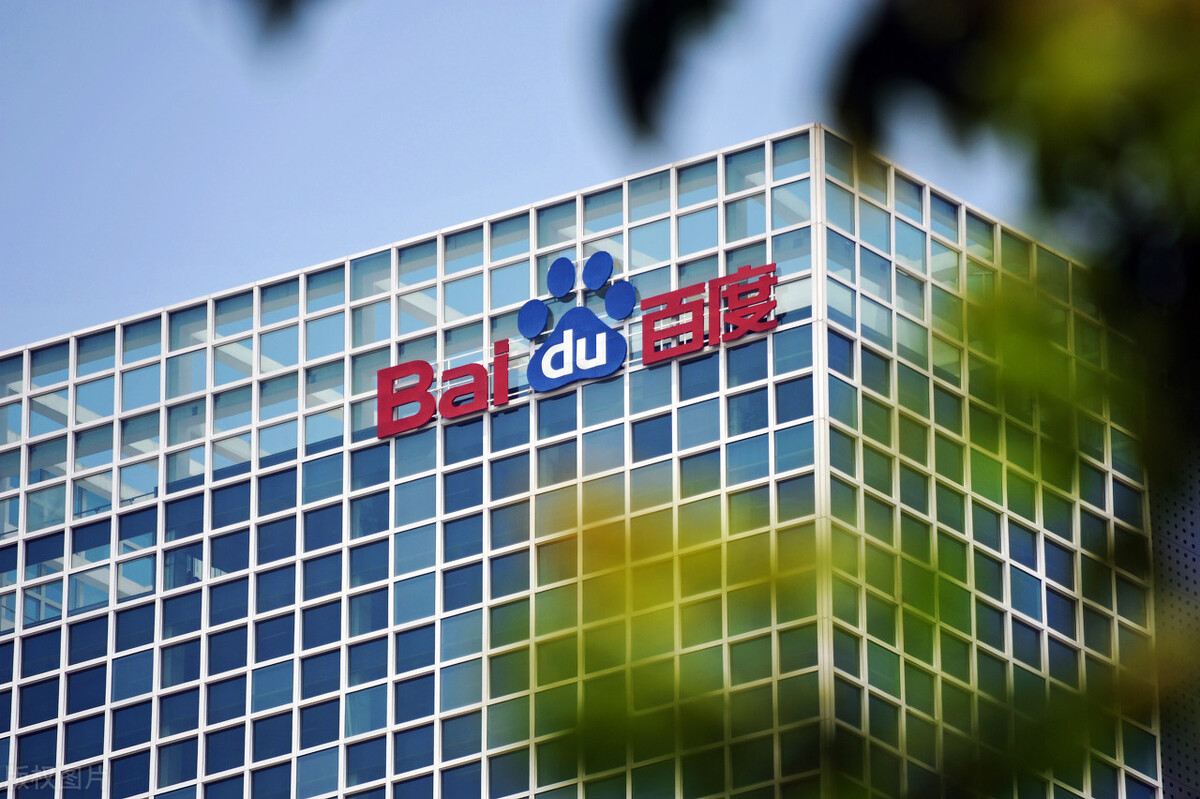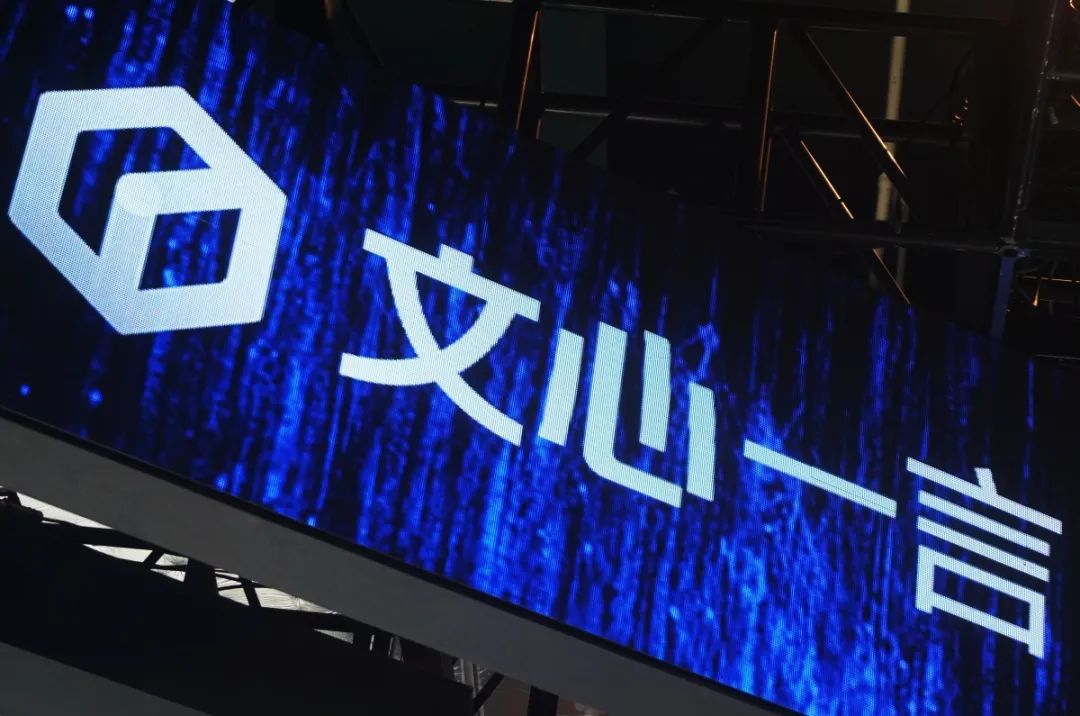Baidu's Q3 from Two Perspectives: Leading in Technology, Long-distance Running in Business
![]() 11/22 2024
11/22 2024
![]() 579
579

On November 21, Beijing time, Baidu released a controversial financial report. Total revenue for the quarter was 33.6 billion yuan, basically flat compared to the same period last year; however, revenue attributable to Baidu's core business surged 17% year-on-year to 7.54 billion yuan, far exceeding market expectations.
In this financial report, the AI business showed strong growth momentum, especially as generative AI revenue accounted for 11% of total AI cloud business revenue, more than doubling from 5% in the same period last year. The daily average call volume of the Wenxin large model also increased significantly, reaching 1.5 billion, doubling from three months ago. This performance also reflects the market's high recognition of its technology.
However, along with these highlights, hidden concerns coexist. From the financial report, Baidu's online marketing business is facing challenges, which is not only a difficult problem for Baidu but also a microcosm of the entire internet industry in the process of digital transformation.
The growth of Baidu's AI business, especially the widespread application of the Wenxin large model, signifies that the company's deep accumulation in AI technology is beginning to translate into market competitiveness. This transformation has brought significant business growth to Baidu and driven the performance of the AI cloud business. However, there is still uncertainty about whether the AI business can sustain this growth and how it can form a good synergy with traditional businesses.
This financial report is a microcosm of the commercialization process of its AI technology. It encapsulates the complex relationship between technological progress and market adaptation, as well as the art of balancing breakthroughs in emerging fields with traditional business models. Baidu's AI story is unfolding, but how it will be written in the future remains to be seen.
01. Dual-track parallel search model, AI search transformation embraces new opportunities
Among its existing businesses, Baidu's core segment is undoubtedly MEG (Mobile Ecosystem Group), which has long supported its main revenue source. As AI technology gradually infiltrates and reshapes Baidu's business structure, the importance of MEG becomes increasingly prominent.
Of course, the rise of new traffic entry points such as short videos and mini-programs is also impacting Baidu's traditional search business foundation. Short video platforms, represented by Douyin, are gradually carving out market share in advertising through new types of advertising models and strong user stickiness, objectively intensifying the competitive pressure faced by Baidu in the advertising field.
Apart from external competition, Baidu is also very cautious in its strategic choices for its core business of "search".
We are currently in a transitional phase where generative search in the AI era is gradually replacing traditional keyword search. Currently, search on the Baidu App is still keyword-based, with generative content integrated only in some hot topics, and an AI entry has been added below the personal page. Meanwhile, "Wenxin Yiyan" has also embedded search capabilities in its functions to address the challenges of information timeliness and "hallucination" issues.

Baidu's current dual-track parallel search model, which combines old and new methods, not only demonstrates the potential of generative search but also reflects its caution in comprehensively restructuring the search business. However, the coexistence of generative search and keyword search also results in differences in their commercialization speeds.
Content generation, as the most widely used application scenario brought about by large models, has a relatively clear implementation path; however, compared to traditional keyword search, generative search and conversational search represent a comprehensive reshaping of existing business models and operational logic.
From a business model perspective, keyword search, which embeds advertisements through information streams, has been one of Baidu's main sources of income for a long time. Due to changes in the interaction mode, it is difficult for generative search to efficiently embed advertisements like traditional search. In terms of operational logic, keyword search presents multiple search results by matching keywords with content, while generative search relies on the model's reasoning ability, making its operating costs significantly higher than traditional search.
However, this challenge is also reflected in international cases. For example, New Bing, which has completed the iteration of its search model and uses models to generate search results, faced early questions about "diluting" model capabilities due to the high reasoning costs for C-end users. Meanwhile, Microsoft's advertising revenue has remained stable in the last two quarters, and Bing, as a significant source of advertising revenue, has not significantly benefited from generative search.
This suggests that the commercialization model for generative search still needs time to explore, and it is not easy to completely break away from the profit logic of traditional search.
However, this does not mean that Baidu's efforts in the transformation of AI search have not borne fruit. Baidu's continuous promotion of AI technology application, especially the deep integration of generative AI and search functions, has still brought significant progress to its intelligent cloud business. This transformation has not only enhanced the search experience but also promoted the growth of Baidu's cloud service business.
In the domestic large model field, fierce competition in underlying technologies has continued for nearly two years, with major vendors constantly making breakthroughs in technology research and development. However, the process of commercialization remains a focus of attention for the industry and capital markets. Investors and corporate executives are increasingly concerned about where the "Kill Point" will emerge.
Faced with capital market expectations for AI commercial growth, Baidu has responded with a "practicality"-focused core strategy.
Last week, the theme of the Baidu World Conference was set as "Applications Are Coming." At the conference, Robin Li stated that this theme represents Baidu's judgment on the current development of the large model industry: shifting from investing in underlying models to exploring application layers is basically the current industry consensus.
According to IDC's August report, "China AI Public Cloud Service Market Share, 2023," publicly available data shows that Baidu's intelligent cloud Qianfan large model platform has helped customers fine-tune 33,000 models and develop 770,000 enterprise applications.
While strengthening the application of AI, Baidu is also advancing the deep reconstruction of its search business by large models. Financial report data shows that in September 2024, the MAU of the Baidu App reached 704 million, a year-on-year increase of 6%.
At the same time, users are also transitioning from mere searching to content production on Baidu. According to data released by Li Xiaowan, General Manager of Baidu's Information Distribution Platform and Head of Baijiahao, the total number of creators on the Baidu App has exceeded 11 million, with the total number of creators using AI increasing by 245% year-on-year.
02. Cloud racing, vehicle leading, has Baidu's dual-track future emerged?
During last night's earnings call, Robin Li mentioned that Baidu's intelligent cloud business revenue reached 4.9 billion yuan in the third quarter, a year-on-year increase of 11%. The Non-GAAP operating profit margin also increased. Non-online marketing revenue for the quarter was 7.7 billion yuan, a year-on-year increase of 12%, which the financial report attributed to the drive of intelligent cloud services.
Objectively speaking, it will take time for the intelligent cloud business to become Baidu's core growth engine in the next era. Currently, although the intelligent cloud business has shown good growth momentum, its current revenue scale is still insufficient to offset the financial pressure caused by the pressure on the online advertising business.
Therefore, Baidu urgently needs to cultivate diversified business growth points beyond intelligent cloud services to share the challenges posed by the advertising business to the company's overall performance.
From the current perspective, the Robotaxi, which received much attention in the first half of the year, seems to be taking on this major responsibility for the foreseeable future.
According to market research, the global autonomous driving travel market is expected to maintain a growth rate of over 30% annually in the coming years and will become a trillion-level industry within the next decade. As technology advances and the market scale gradually expands, Luobotukuai is expected to become Baidu's core competitiveness in the field of intelligent travel.
Each travel service involves extensive vehicle data collection, real-time analysis, and route planning, all of which rely on Baidu's intelligent cloud's big data processing capabilities and AI technology support. Therefore, this has also become an important factor driving the growth of Baidu's intelligent cloud.

Of course, the rapid expansion of the autonomous driving business also means that more cloud computing resources are needed. Although Baidu has not separately disclosed its specific revenue contribution to intelligent clouds, it can be inferred that as the volume of services increases, the demand for cloud computing infrastructure will continue to expand, which will also drive an increase in intelligent cloud revenue to some extent.
However, currently, the commercialization of large models is still in its early stages. Even if Baidu's Robotaxi becomes profitable next year, it will take time to verify whether it can successfully achieve large-scale market operation. In the short term, there is still considerable pressure on both to replace online marketing as the pillar of Baidu's revenue.
Therefore, in this context, Baidu's current priority is to focus on the optimization and adjustment of its search business to stabilize its core business foundation.
03. Final Thoughts
While reviewing Baidu's financial report, we are also observing the changes of an era. The development of AI technology, like a quiet revolution, is reshaping the face of the technology industry. As one of the participants in this revolution, the data and trends in Baidu's financial report provide us with an observation window. They reveal the challenges and opportunities in the commercialization process of AI technology and reflect common issues faced by the entire industry in exploring unknown areas.
Globally, from tech giants in Silicon Valley to Chinese internet companies, the application of AI technology is gradually penetrating various fields. Amazon's AWS, Google's DeepMind, Microsoft's Azure, and Baidu's intelligent cloud are all promoting the commercialization of AI technology in different ways. These attempts, whether successful or unsuccessful, are valuable experiences for industry development.
Baidu's financial report is a microcosm of this process. It shows how AI technology moves from the laboratory to the market, demonstrating its value in the commercial field while also reminding us that the commercialization of technology is not always smooth sailing. The pressure on online marketing revenue and the commercialization challenges of the autonomous driving business are issues that Baidu and the entire industry need to face.
Technological innovation does not happen overnight; it takes time, iteration, and continuous learning and adjustment in practice. Baidu's AI journey is like a marathon, where endurance and direction are more important than speed. In this process, Baidu is not only a participant but also an explorer.
We have reason to believe that the AI story will become more exciting. However, we should also remain sober, as this path is not devoid of thorns and challenges.
*Title image and images in the text are sourced from the internet.






